Nakagin Capsule Tower’s rare “pink capsules”, formerly used in the sex industry
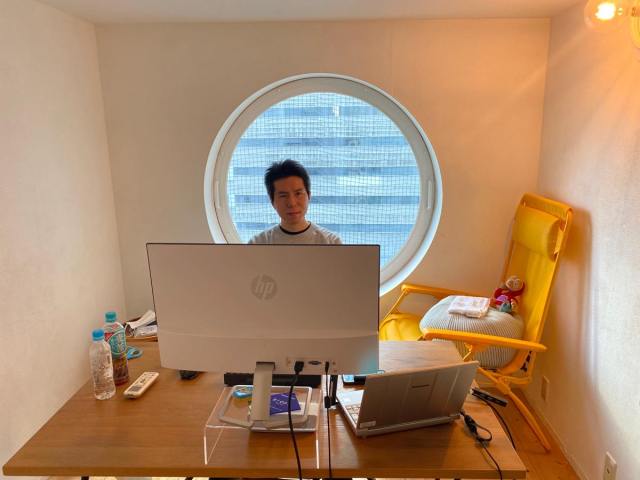
The people of Nakagin Capsule Tower are a wealth of knowledge when it comes to the history of the soon-to-be-demolished iconic building.
Tokyo’s iconic Nakagin Capsule Tower has been standing tall in its Ginza location since it was built in 1972 as a shining example of futuristic design by Japanese architect Kisho Kurokawa.
In recent years, however, the ageing building has fallen into disrepair, and this year it was decided that the tower would be demolished in the spring of 2022, despite the wishes of architecture buffs and those living in and using some of the 140 self-fabricated capsule apartments inside the twin-tower concrete complex.
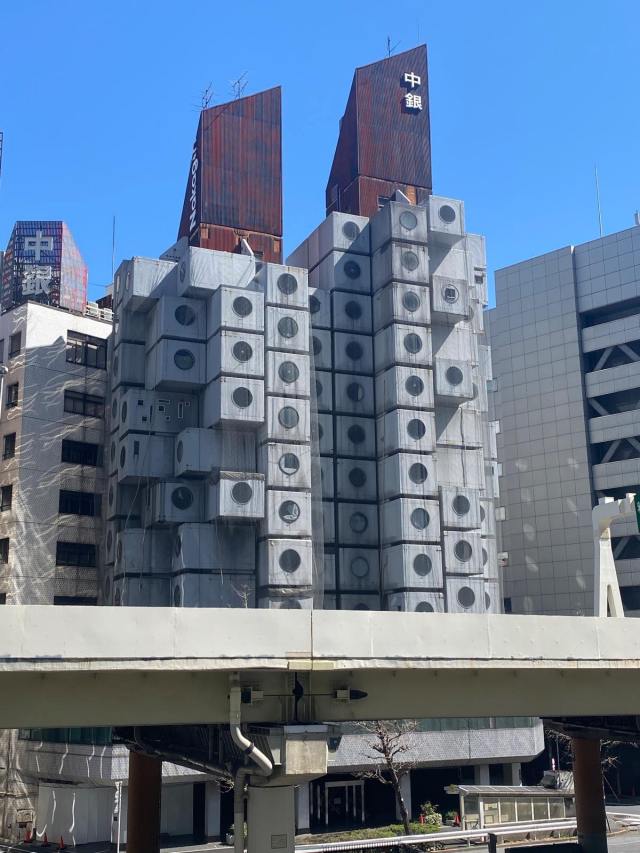
Our own Japanese-language reporter Chie Nomura took up residence at Nakagin earlier this year, and though she was only meant to stay there for a month, she’s still there almost five months later. Having fallen in love with the unique style of living and the community connected to the complex, she hasn’t been able to tear herself away from the building.
So now, as we head towards the final months in the building’s long and storied history, Nomura has decided to shine a light on some of the people of Nakagin Capsule Tower, who act as the lifeblood of the complex. And the first person we’re profiling today is a man called Mr. Okuyama.

Okuyama is a 44-year-old reporter who has been using one of the capsule apartments as a second office. What makes his apartment so special is the fact that it’s one of the few in the complex known to be a former “pink capsule“, once used by members of the sex industry.
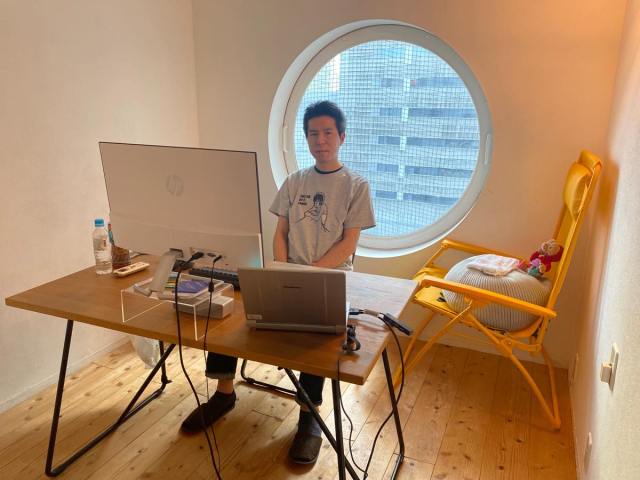
The colourful history of the room shows just how many changes it’s seen over the years, and now it’s a clean, sleek space with wooden floorboards, modern light fittings, and bright white walls, lovingly painted by Okuyama himself.
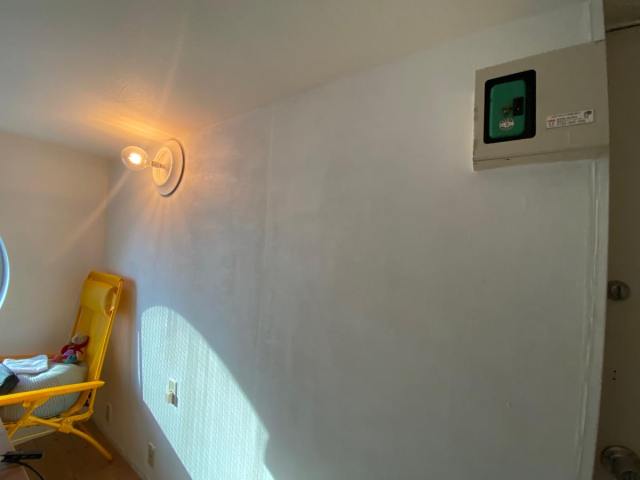
Hokkaido-born Okuyama came to live at Nakagin in 2015, after living at a number of different places in Japan, including Kyoto during his university years. After finding out about Nakagin and the volunteer efforts of individuals working to preserve it, he expressed his interest in purchasing a capsule, but just as it looked like an opportunity to purchase one would be opening up, he was pipped at the post by another buyer.
That only solidified his desire to purchase an apartment in the tower, and after a few months of waiting, he was finally successful.
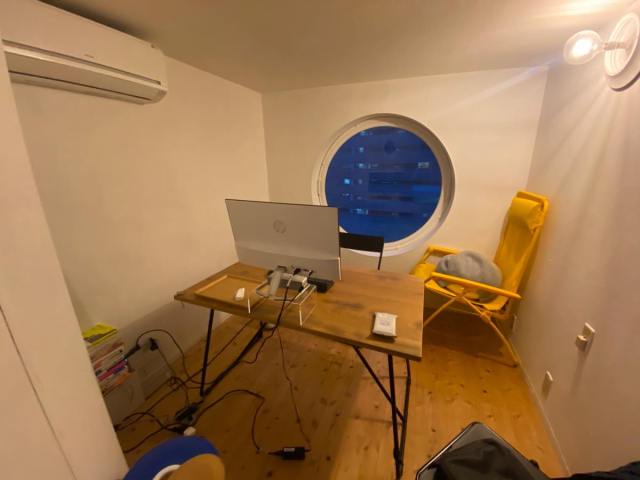
However, the property and its real estate value had deteriorated to such an extent that no bank would provide him with a loan for the purchase, so the only way to buy the capsule was with a lump-sum cash payment.
Okuyama says he felt as if he was in a TV drama when he withdrew money from his bank and hailed a cab while carrying the large amount of cash on him. At that time, it was the most expensive shopping trip of his life.

Once the purchase had gone through, Okuyama had no particular purpose for the capsule, and he thought about using it as a storeroom to help with the ongoing preservation activities. However, he ended up using it once a week and occasionally invited people over for drinks.
Due to the pandemic, he now works here remotely for more than half the week, and it’s serving him well as a second office. He still uses it occasionally as a place to unwind with friends too.
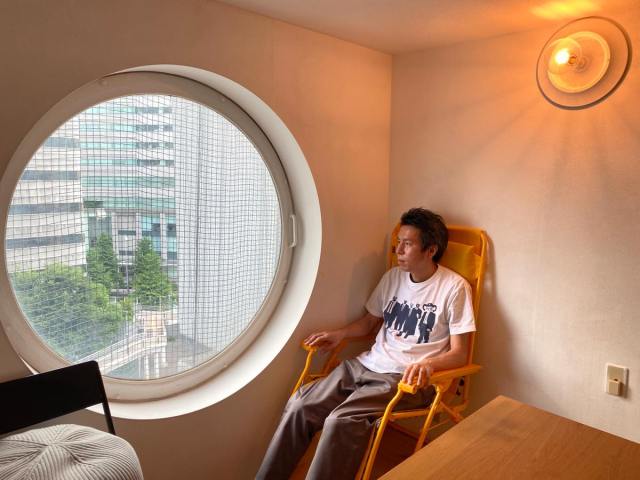
One perk of using the capsule as his second office is the fact that during online meetings, people can see the large round window behind him. These large windows are a signature design feature of Nakagin, so it immediately sparks interest from others at the meeting, who want to find out more about what it’s like to work inside the building.
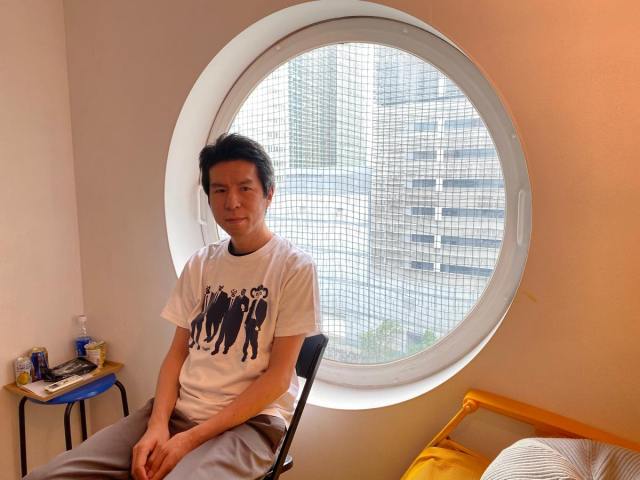
When asked about the pros and cons of living in the building, Okuyama says the best thing about it is the sense of community he has with other residents. He says:
“We have different jobs, ages, and hobbies, but the capsules connect us. Each person has their own individual feelings about the capsules, and while we all like them, there are subtle differences in our likes — we might have different outlooks, but we’re still connected. It’s a great feeling.”
When discussing the cons of living in the building, Okuyama says the only thing he can think of is the inconvenience of not being able to use the toilet in the room. Due to damaged plumbing, there are shared toilets on the first floor, and because Okuyama’s apartment is located on one of the upper floors, it’s a long way down to use the facilities. Okuyama says he now tries to keep his drinks to a minimum to keep his toilet trips to a minimum too.
▼ Damaged plumbing is one of the reasons our reporter created this setup in order to bathe in dehumidifier water.
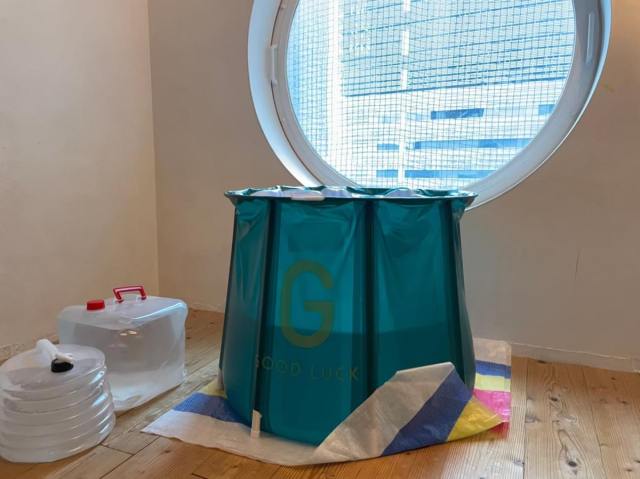
▼ While each apartment comes with its own bathroom, Okuyama’s doesn’t have any running water, so it’s currently being used as a storeroom.
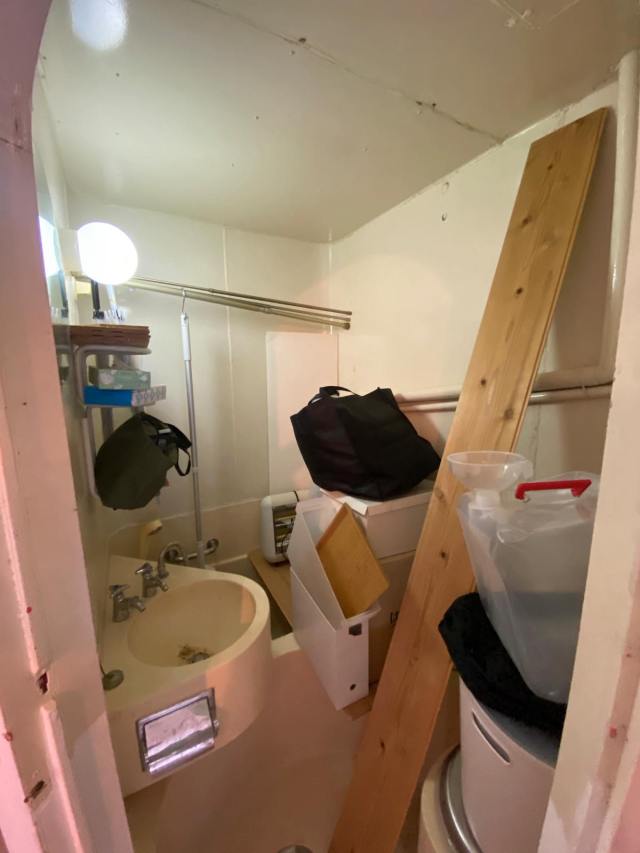
While the bathroom isn’t being used for its original purpose right now, it still holds remnants of the past, because behind its door you can see remnants of the pink paint used for the so-called “pink capsule”.
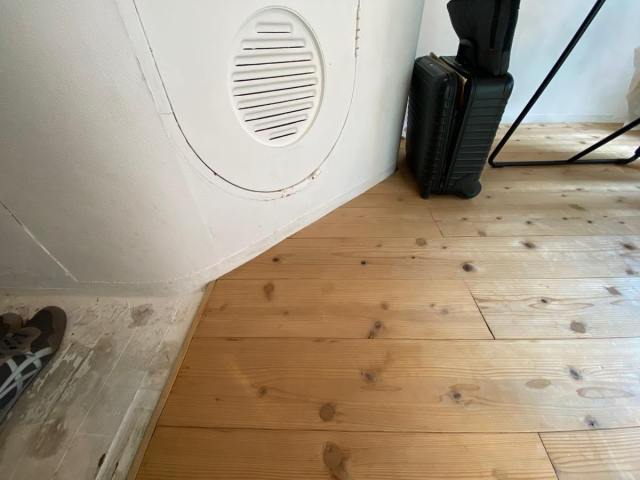
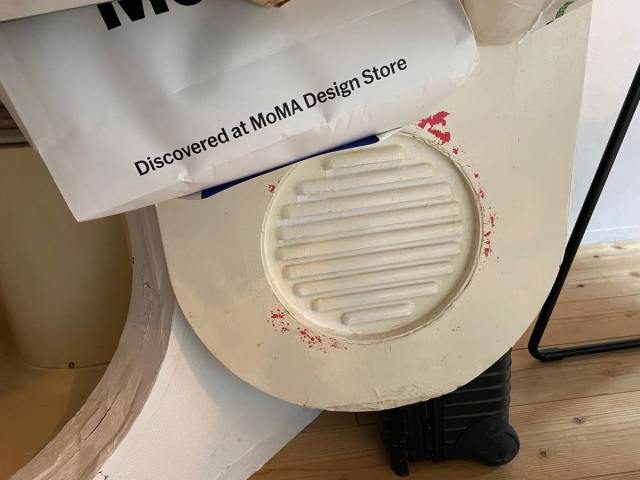
These legendary pink capsules were also decorated with pink marble-patterned wallpaper, and when the blind on the apartment’s circular window was up, it’s likely that people below or across the way in opposite buildings would’ve been able to see the faint pink glow.
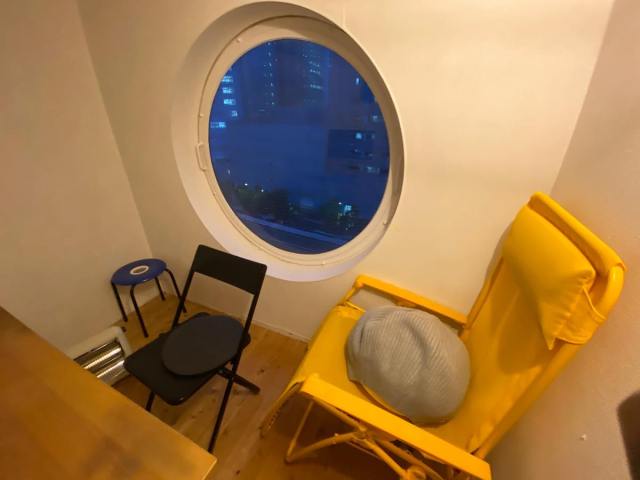
Now, the only thing people across the way are getting a view of is Okuyama’s book collection…
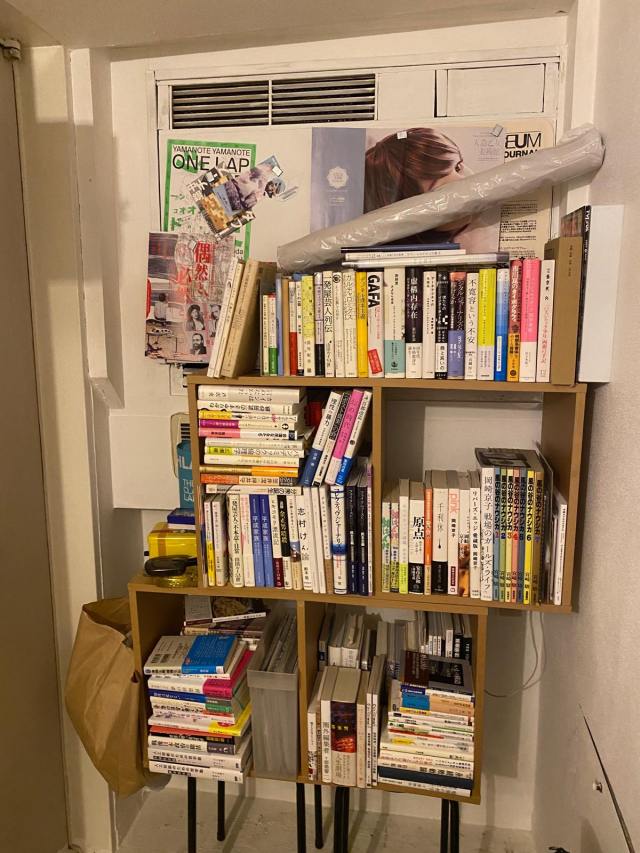
▼ …his leaky air conditioner…
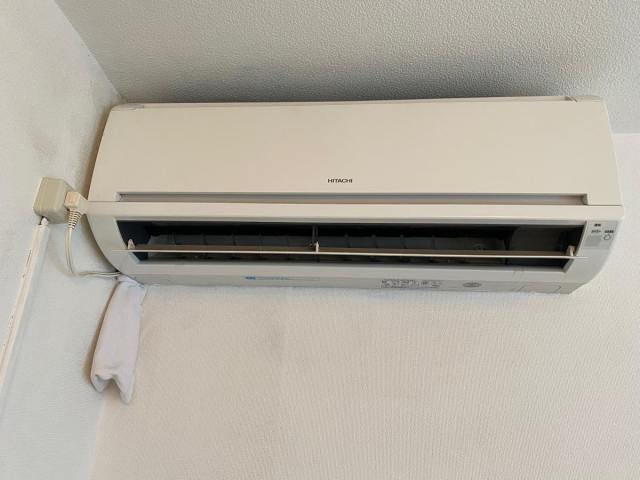
▼ …his masterful floor-sweeping skills…
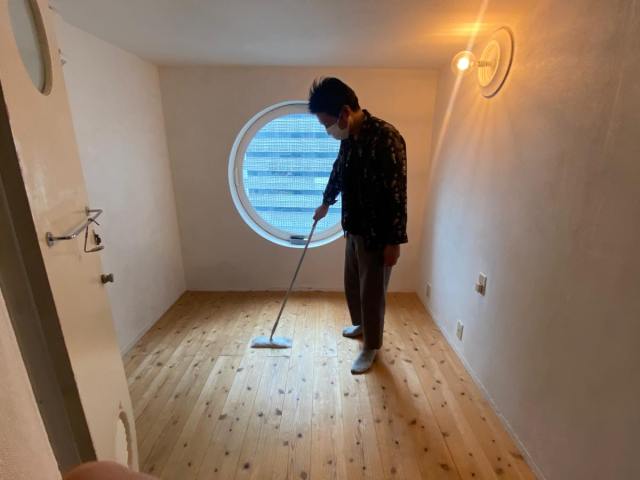
▼ …and his occasional evening naps, in a nifty chair that reclines to double as a makeshift bed.
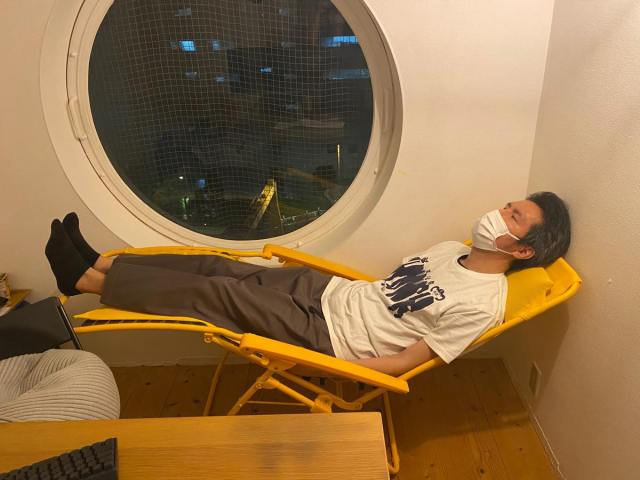
Okuyama has transformed the tiny apartment into an ideal workspace over the years, ripping up the old carpet and replacing it with cedar flooring, and adding design touches that make it a comfortable living space as well.
▼ A circular tray mimics the round window, transforming a stool into a side table for a bottle of whisky.
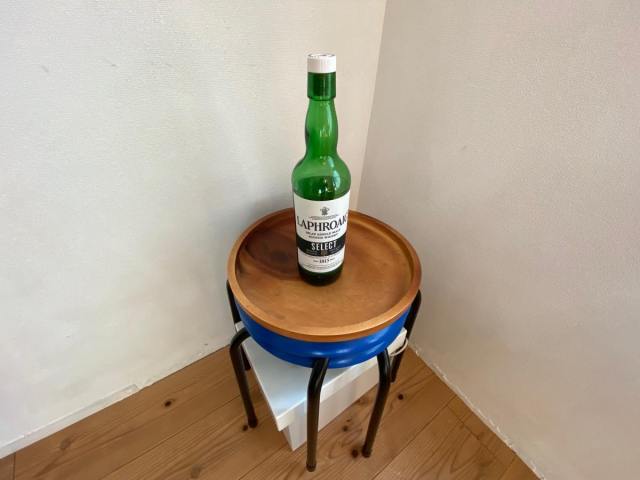
▼ Yes, that’s E.T. on the chair, keeping Okuyama company while he works.
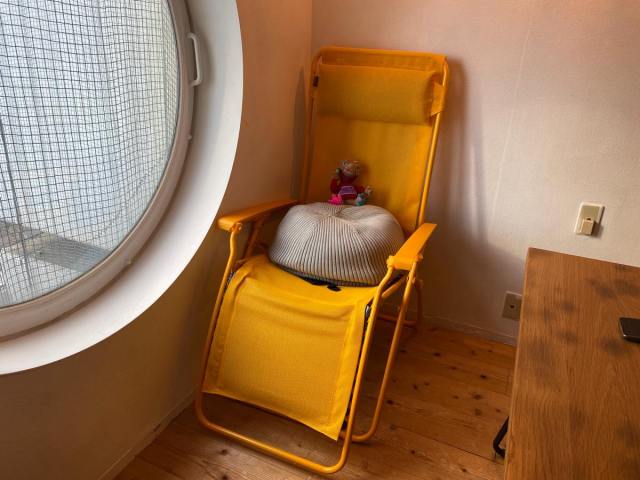
Okuyama’s favourite spot has always been beside the circular window, where he can relax and watch the world go by.

▼ The city view is great by day…
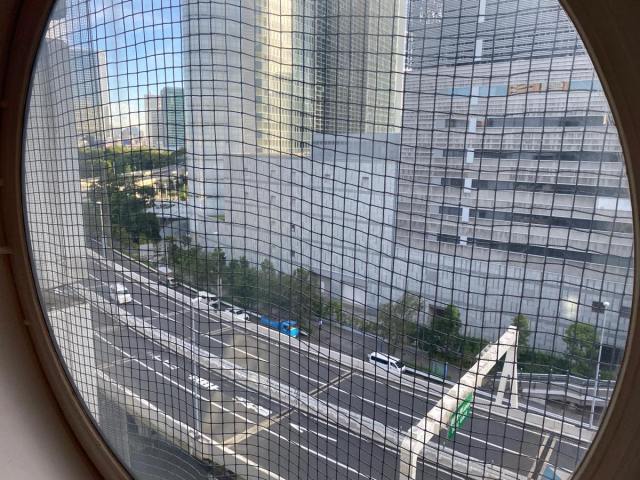
▼ …and even better by night.
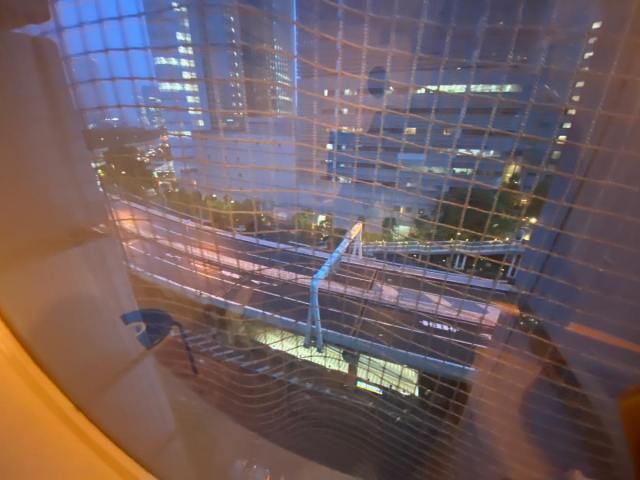
With the tower scheduled to be demolished next year, we asked Okuyama to share his feelings about the sad future of the building.
“Because it’s going to be gone, I’m making sure to enjoy every minute of it. Even if the capsules are gone, human relationships will continue. It’s like what the tower’s architect, Kurokawa, says — the relationships born in a place will move with you when you do.”
Okuyama’s apartment will soon be no more, but it’s been immortalised in the 2021 Nakagin Capsule Tower Building Calendar, where his smart-looking office graces the month of July.
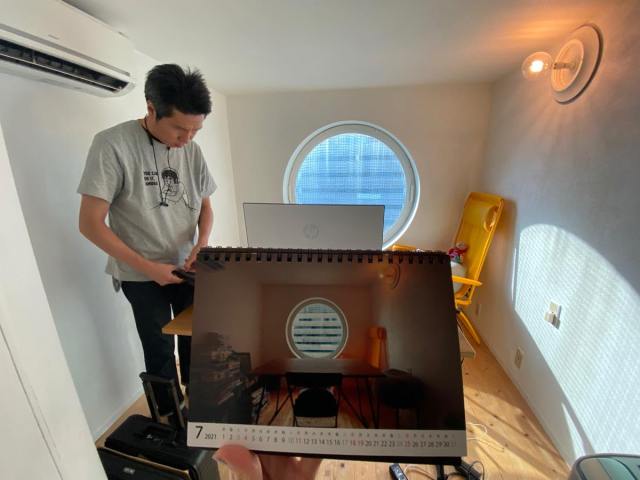
Okuyama’s sage words about community and relationships really struck a chord with Nomura, who hopes to deal with the upcoming demolition with as much stoicism as she can when the time comes.
Until then, you can find her testing out gadgets like this no-electricity washing machine, as a way to add some extra joy, and convenience, to her final days of capsule-apartment living!
Images: ©SoraNews24
● Want to hear about SoraNews24’s latest articles as soon as they’re published? Follow us on Facebook and Twitter!
Credit:

0 comments: